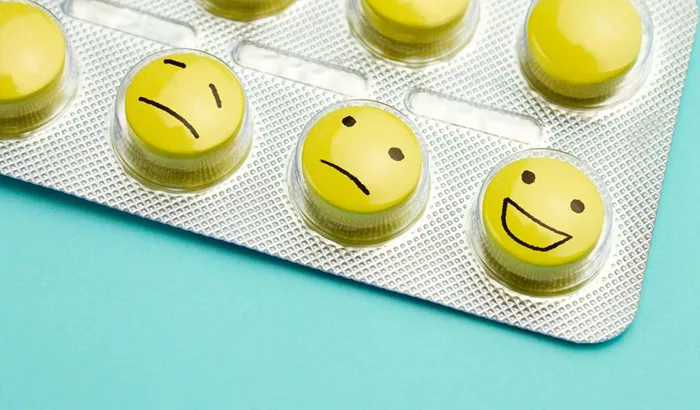Taking antidepressants is an important step in treating depression. But for many people, these medications don’t seem to help — or even make things worse. This can leave you feeling confused, discouraged, and wondering what’s wrong.
The truth is that depression is not just a simple brain chemical imbalance. Many factors, from physical health to lifestyle habits, can affect how well your medication works. If you feel stuck, it may be time to look at what else could be getting in the way.
Here are eight common reasons why antidepressants might not be working as expected — and what you can do about it.
1. Hidden Health Problems That Mimic Depression
Some physical health issues can cause symptoms that look like depression. If your doctor doesn’t find these problems, your antidepressant might not help.
Thyroid issues, like hypothyroidism, can make you tired and moody.
Autoimmune diseases such as lupus or multiple sclerosis can affect your brain and mood.
Hormonal changes from menopause, pregnancy, or PCOS (polycystic ovary syndrome) may disrupt mood.
Sleep disorders, like sleep apnea, stop your brain from getting the rest it needs to heal.
If you feel worse despite taking your medicine, ask your doctor to check for these conditions.
2. Medication Interactions and Poor Absorption
Other medicines and health problems can block your antidepressant from working properly.
Some birth control pills, blood pressure drugs, or painkillers can reduce your antidepressant’s effect.
Digestive issues like IBS or celiac disease may stop your body from absorbing the medication.
Your genes can affect how fast you break down medications — too fast or too slow can both cause problems.
Herbal supplements like St. John’s Wort can interfere with prescription drugs.
If you’re taking other medicines or supplements, let your doctor know. They might be affecting your treatment.
3. Stress and Poor Lifestyle Habits
Chronic stress and poor habits can block the benefits of medication.
Long-term stress from work, money, or relationships floods your brain with stress hormones like cortisol.
Unhealthy diets high in sugar and processed food can lead to mood problems.
Lack of exercise slows down endorphin production, making it harder to feel better.
Isolation or loneliness can worsen depression, no matter how effective your meds are.
Changing your lifestyle — eating better, staying active, and connecting with others — can improve results.
4. Substance Use Interfering with Treatment
Even small amounts of drugs or alcohol can stop your medication from working.
Alcohol acts as a depressant and can make your symptoms worse.
Recreational drugs like marijuana may mess with your brain chemistry.
Too much caffeine can increase anxiety and affect sleep, making depression harder to treat.
Smoking or nicotine use adds stress to your body and makes it harder to heal.
Cutting back or quitting these substances can make a big difference in your recovery.
5. Wrong Medication or Incorrect Dose
Finding the right antidepressant can take time.
Some people need higher doses to feel better, while others may need a mix of medications.
Genetic testing can help your doctor choose the best type and dose for you.
Seasonal changes may also affect how you feel. Some people need extra support during the winter.
Don’t give up if the first medicine doesn’t work. It often takes several tries to find the right one.
6. Past Trauma and Mental Health History
If you’ve experienced trauma, medicine might not be enough on its own.
Childhood abuse, neglect, or trauma can cause lasting brain changes that resist treatment.
Ongoing trauma like domestic violence or bullying keeps your brain in “survival mode.”
PTSD (Post-Traumatic Stress Disorder) needs a different kind of treatment than depression.
Therapy, especially trauma-informed care, is often essential for true healing.
7. Poor Sleep Habits and Disorders
Good sleep is essential for mental health.
Insomnia or light sleep prevents your brain from repairing itself.
Sleep medications might help short-term but can cause long-term issues.
Working night shifts or irregular sleep schedules can throw off your body clock.
Breathing problems during sleep, like sleep apnea, reduce oxygen to the brain and affect mood.
Sleep problems need to be treated directly — medicine alone won’t fix them.
8. Missing Key Nutrients in Your Diet
Your brain needs proper nutrition to function well.
Vitamin D helps regulate mood and is often low in winter.
B vitamins, especially B12 and folate, support brain chemicals that control mood.
Omega-3 fatty acids, found in fish, reduce brain inflammation and support mental health.
Magnesium plays a role in stress and mood — and many people don’t get enough.
A simple blood test can show if you’re low in any of these nutrients. Supplements or diet changes can help.
Taking A Whole-Person Approach to Recovery
If your depression isn’t getting better with medication alone, you’re not alone — and you’re not failing. The answer may lie in one or more of the areas above.
Talk to a doctor who understands that treating depression is about more than just pills. It may include:
- Blood tests to check for hidden health problems
- Genetic tests to personalize your medication
- Therapy to work through trauma
- Nutrition, sleep, and lifestyle changes
Depression is treatable, but it takes time and often more than one solution. With the right care, you can move toward recovery — one step at a time.
Read more:
- Can Antidepressants Cure Depression?
- What Antidepressants Help With Weight Loss?
- What Are The Best Antidepressants To Use In Pregnancy?


